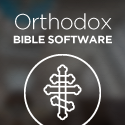What this post is going to do is compare my understanding of Mark 13:27 with a common understanding that I have run into from Evangelical Protestant friends.
“καὶ τότε ἀποστελεῖ τοὺς ἀγγέλους καὶ ἐπισυνάξει τοὺς ἐκλεκτοὺς ἐκ τῶν τεσσάρων ἀνέμων ἀπʼ ἄκρου γῆς ἕως ἄκρου οὐρανοῦ” (Mark 13:27).[1]
“And then He will send forth the angels, and will gather together His elect from the four winds, from the farthest end of the earth to the farthest end of heaven.” (NASB)[2]
The word from (ἐκ) tells us where the angels will be gathering the elect. The word “ἄκρου” is given twice, and we see that what it is qualifying is how far a range the gathering will be. It will be from the ends (ἄκρου) of the earth, until (ἕως) the ends (ἄκρου) of heaven. ἕως is of course using the “qualifying range” use of the greek word word.[3]
From my rendering of the text, what we have is God saying that saints from the heavenly realm and earthly realm will all be gathered, not one will be left out. It’s an all-encompassing statement.
Here is my attempt to try and visualize it for you, the reader:
|outermost part —earth — heaven —- outermost part|
Now, a common Evangelical Protestant understanding of the text basically sees the text as angels gathering the elect and bringing them to heaven. Visualized as so:
| Outermost part of earth —bring elect—> outermost part of heaven |
From all my lexicons (especially BDAG) ἕως won’t function like that in this situation (or ever). It seems to me that this understanding is mixing up the function of a Greek preposition “ἕως” with a function the English preposition “to” can have. Furthermore, what the english reader is doing is supplying a verb other than “gather,” such as the verb “bring” and trying to make “heaven” (οὐρανοῦ) a direct object of that supplied verb (bring). It just doesn’t seem probable that “heaven” (οὐρανοῦ) is the direct object of “gather” or an implied verb like “bring”, but “heaven” (οὐρανοῦ) would be the object of a proposition (ἕως), which as I said does not function the way my Evangelical Protestant friends want it to.
Furthermore, this verse doesn’t need a verb added to make sense of it either, as it makes perfect sense with my rendering which utilizes only the textual evidence at hand [4]
Therefore, this is a great text that supports the idea that saints are in heaven.
[1] Holmes, M. W. (2010). The Greek New Testament: SBL Edition. Lexham Press.
[2] New American Standard Bible: 1995 update. (1995). LaHabra, CA: The Lockman Foundation.
[3] Arndt, W., Danker, F. W., & Bauer, W. (2000). A Greek-English lexicon of the New Testament and other early Christian literature. Chicago: University of Chicago Press; BDAG calls it a marker of limit reached, as far as, to, funct. as prep. Furthermore, it also sees Mark 13:27 using ἕως in this way.
[4] In fact, it seems that from other protestant works I have read on revelation, the elders in Revelation are seen as saints or elect. Therefore, it seems to me that it is safe to say that the elect chosen people of God are in the heavenly realm, waiting for the final resurrection.
